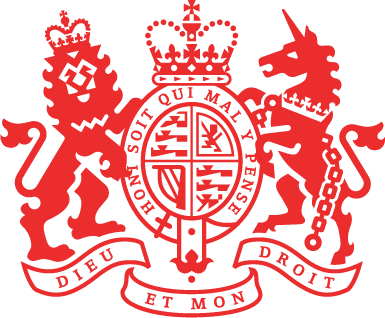Related Cases
- 1001/1/1/01 Napp Pharmaceutical Holdings Limited and Subsidiaries v Director General of Fair Trading
Neutral Citation Number
Published
Summary
Appeal dismissed, fine reduced from £3.21 million to £2.2 million. Directions to adjust pricing policy upheld. This is the first appeal to the Competition Commission Appeal Tribunal (the Tribunal) against the decision of the Director of Fair Trading (the Director) to impose a fine under section 36 of the Competition Act 1998 (the Act). The Act came into force on 1 March 2000. The decision was made following an investigation of a complaint to the Office of Fair Trading.
In his decision of 30 March 2001 the Director found that Napp Pharmaceutical Holdings Limited and subsidiaries (Napp), a pharmaceutical company based in Cambridge, had abused a dominant position in the supply of sustained release morphine tablets and capsules in the United Kingdom, contrary to section 18 of the Act, and imposed a fine of £3.21 million on the company.
The Director’s decision also included directions under section 33 of the Act regulating the prices at which Napp’s sustained release morphine tablets, MST CONTINUS (MST), are to be sold. MST was launched by Napp in 1980 and was the first sustained release morphine product to appear on the market. Napp has around 95 per cent of the total market for oral sustained release morphine tablets and capsules in the United Kingdom. By far the majority of the supply of oral sustained release morphine is to the community segment of the market – ie. to patients under the care of their GP (86 to 90 per cent).
Remainder of supply is to hospitals who either purchase by competitive tender, organised on a regional basis by NHS Purchasing and Supplies Agency, or its equivalent in Scotland or Northern Ireland, or directly from the manufacturer by independent tender.
In the Decision of 30 March 2001 the Director found that a number of factors made it difficult for new competitors to enter the market. According to the Director, the cumulative effect of these factors is to create significant barriers to entry into the community segment of the market, although that does not apply to the hospital segment where purchasers are price sensitive. In his decision the Director concluded that, for a new competitor, virtually the only viable means of gaining entry to the community segment of the market was through the “strategic gateway” of sales to hospitals. In his Decision the Director found two specific abuses of a dominant position:
• The first abuse of Napp’s dominant position found by the Director related to its excessively low prices in the hospital segment of the market. By matching the prices offered by competitors with discounts of in excess of 90 per cent off its list prices Napp effectively foreclosed the hospital segment of the market. The Director found that Napp’s prices in the hospital segment were below average direct cost and were intended to exclude competitors from this key strategic gateway to the larger and more profitable community segment of the market.
• The second abuse found by the Director was that the prices charged by Napp for MST in the community segment were above the competitive level and excessive. The prices that Napp was able to charge to the much larger community segment were on average well over 10 times higher than its
price in the hospital segment and, at its highest level of discount, on some tablets even higher still. Napp’s prices and margins were significantly higher than on its other products and significantly above those of its competitors. They were not subjected to competitive pressure and Napp was a virtual monopolist. The directions imposed on Napp by the Director to bring the infringements to an end required Napp to reduce the NHS list price of MST tablets by at least 15 per cent and to sell MST tablets to hospitals in the UK at a price of not less than 20 per cent of the (reduced) NHS list price.
In its judgment handed down today the Tribunal has upheld the substance of the Director’s decision on the question of infringement. The Tribunal considered that predatory pricing, even of short duration, is a serious abuse of a dominant position, especially when carried out by a virtual monopolist. The Tribunal considered that excessive prices was equally an abuse in this case, but that in that respect there were some mitigating factors, notably the existence of the voluntary Pharmaceutical Price Regulation Scheme (PPRS) agreed by the pharmaceutical industry, and the fact that this was the first case of excess pricing under the Act.
Taking these mitigating factors into account, and excluding an aggravating circumstance relied on by the Director, the Tribunal has reduced the fine from £3.21 million to £2.2 million. The Tribunal also ordered interest to be payable on the fine from 30 June 2001 to the date of payment.
The Tribunal has also confirmed the Director’s directions which will regulate MST’s price to the hospital and community segments of the market. Under those directions Napp is required to reduce its NHS List Price by 15 per cent and to maintain its hospital prices at a minimum level. At the interim stage of these proceedings Napp gave an undertaking that, if Napp it were to lose the appeal, it would renegotiate the prices contained in its existing hospital supply contracts as quickly as possible, and reimburse the Department of Health for any excess costs which the Department has incurred in reimbursing community pharmacists for MST by reference to current NHS list prices from 29 May 2001.
This is an unofficial summary prepared by the Registry of the Competition Appeal Tribunal.
